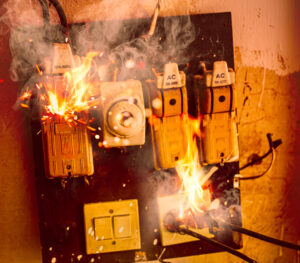Workplace accidents involving electrical hazards can be devastating. From severe burns to electrocution, these injuries often result in significant medical bills, lost wages, and emotional trauma. While Massachusetts law provides a framework for workers’ compensation claims, injured workers may also have the option to pursue third-party personal injury claims if someone other than their employer contributed to the accident.
Understanding Third-Party Claims
In addition to workers’ compensation benefits, Massachusetts law allows injured workers to file personal injury lawsuits against third parties who may be partially or fully responsible for their injuries. These third parties could include contractors, equipment manufacturers, or property owners who failed to meet safety standards. Pursuing such claims can help workers recover damages beyond the limits of workers’ compensation, such as pain and suffering or, in the event of a wrongful death, punitive damages.
Key Scenarios for Third-Party Electrical Injury Claims
- Negligent Contractors: Contractors working alongside your employer must adhere to safety protocols to avoid creating hazards. If a contractor’s negligence—such as failing to de-energize equipment or mishandling electrical systems—causes an injury, they may be held liable.
 Faulty Equipment Manufacturers: Manufacturers are responsible for ensuring their electrical equipment is safe for use. If a defective product—such as a malfunctioning circuit breaker or faulty wiring—contributes to an injury, the manufacturer can be held accountable under product liability laws. Massachusetts affords additional methods of recovery in personal injury cases under its consumer protection laws.
Faulty Equipment Manufacturers: Manufacturers are responsible for ensuring their electrical equipment is safe for use. If a defective product—such as a malfunctioning circuit breaker or faulty wiring—contributes to an injury, the manufacturer can be held accountable under product liability laws. Massachusetts affords additional methods of recovery in personal injury cases under its consumer protection laws.- Unsafe Property Conditions: Property owners are required to maintain safe environments for workers on their premises. When hazardous electrical conditions, such as exposed wiring or lack of warning signs, lead to electrical or shock injuries, the property owner may be liable.
- Inadequate Maintenance by Third Parties: Third-party maintenance companies responsible for inspecting and repairing electrical systems have a duty to ensure the systems are safe. Negligence in performing these duties can result in liability if someone is injured.
Steps to Take After an Electrical Injury
If you’ve been injured in a workplace electrical accident involving a third party, it’s essential to act quickly:
- Report the Incident: Notify your employer and document the accident thoroughly.
- Seek Medical Attention: Obtain immediate care for your injuries and keep detailed medical records.
- Preserve Evidence: If able, take or ask someone else to take photos of the accident scene and any faulty equipment involved.
- Consult an Attorney: A personal injury lawyer can evaluate your case, identify third-party liabilities, and guide you through the legal process.
Benefits of Filing a Third-Party Claim
Filing a third-party claim can provide additional compensation beyond workers’ compensation benefits, such as:
- Pain and Suffering: Compensation for physical and emotional distress caused by the injury.
- Full Lost Wages: Recovery of wages lost due to the injury, including future lost wages.
- Punitive Damages: Financial penalties imposed on the negligent party to deter similar behavior. In Massachusetts, punitive damages are only available in wrongful death claims.
If you’ve suffered an electrical injury caused by a third party, SUGARMAN has a team of skilled personal injury attorneys here to help. If you would like to speak to an attorney, please call us at (617) 542-1000, email us at , or fill out our contact form.

 Faulty Equipment Manufacturers: Manufacturers are responsible for ensuring their electrical equipment is safe for use. If a defective product—such as a malfunctioning circuit breaker or faulty wiring—contributes to an injury, the manufacturer can be held accountable under product liability laws. Massachusetts affords additional methods of recovery in personal injury cases under its consumer protection laws.
Faulty Equipment Manufacturers: Manufacturers are responsible for ensuring their electrical equipment is safe for use. If a defective product—such as a malfunctioning circuit breaker or faulty wiring—contributes to an injury, the manufacturer can be held accountable under product liability laws. Massachusetts affords additional methods of recovery in personal injury cases under its consumer protection laws.